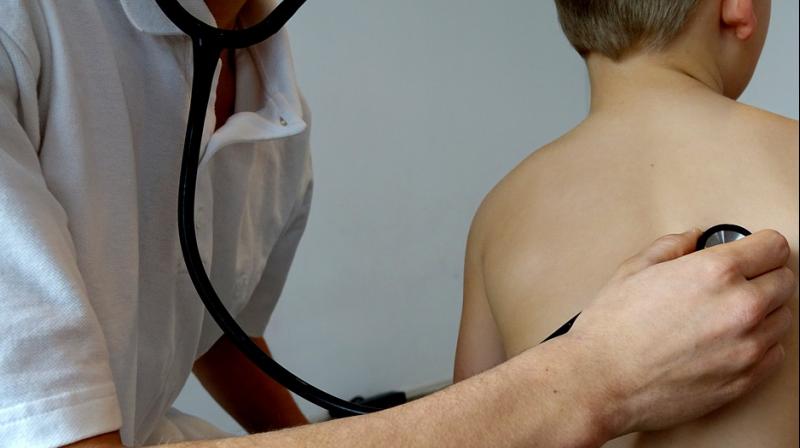Acute chest syndrome could lead to respiratory failure in children
ACS increases a child's risk of chronic lung disease and prolonged hospitalisation if not recognised early and treated effectively.

Washington: A study has recently warned that if Acute Chest Syndrome (ACS), a potentially severe lung complication of sickle cell disease, is not treated effectively in children then it may increase the risk of respiratory failure, chronic lung disease and prolonged hospitalisation.
According to researchers, ACS increases a child's risk of respiratory failure, chronic lung disease and prolonged hospitalisation if not recognised early and treated effectively.
Sickle cell disease is a group of disorders that cause red blood cells to become misshapen and break down.
Researchers Shilpa Jain from Women and Children's Hospital of Buffalo, New York, Buffalo and Nitya Bakshi and Lakshmanan Krishnamurti from Children's Healthcare of Atlanta conducted the study.
The team examined the multiple factors that can contribute to a child's increased risk of ACS and proposed mechanisms by which ACS may develop.
The researchers also provide a comprehensive review of the clinical features of ACS in this patient population, preventive approaches including the use of hydroxurea - a drug that inhibits the synthesis of DNA - what is needed to achieve a prompt diagnosis.
Effective therapies, pain control and when to consider the use of bronchodilators are other important topics discussed.
Mary Cataletto from Stony Brook University's school of medicine said, "Management of acute chest syndrome is a major challenge for physicians and other healthcare providers caring for children with sickle cell disease. Not only can episodes recur but damage from repeated episodes can lead to pulmonary infarcts, fibrosis and deterioration in lung function".
"It is not only important to know how to recognize and treat an acute episode but to be able to implement long term management strategies to try and prevent future episodes."

